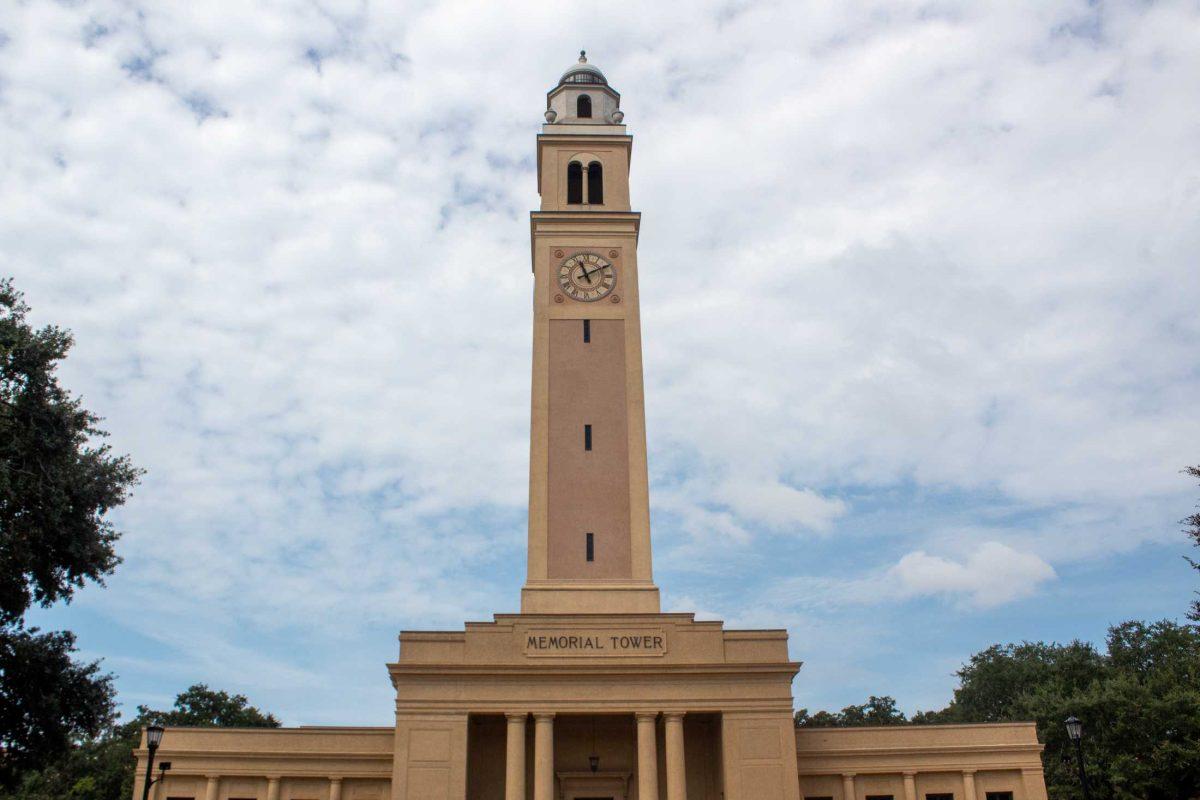LSU President William Tate IV received backlash when he criticized student media at a Board of Regents budget meeting on Sept. 20.
“Every student newspaper article in all the systems, if you pick them up, 95% of the information is negative,” he said. “The negative instinct is overwhelming in journalism. They cannot help themselves.”
Professional journalists, parents, LSU professors and The Reveille editorial board quickly responded to Tate’s comment, rightly recognizing the vital role that journalism plays at the national, local and university levels: to help people grasp a clearer picture of reality.
Two days after his comments, the president apologized to The Reveille staff, pledging his “unwavering support” to the paper as “an independent voice in pursuit of truth.”
Undoubtedly, the public was justified in being angry with Tate, just as he was right to apologize.
Tate’s comments, though, brings up some important questions: Why is it that the news seems to be so critical? Why is it that, seemingly everywhere we turn, there’s yet another negative story featured in the news at the local or national level?
There’s a cynical answer: negativity sells. The advertisement-based business model followed by any number of American newspapers, magazines and television networks force companies to cater to their respective audiences.
Why is it, for example, that Jacobin Magazine, named after left-wing, radical French revolutionaries, almost exclusively features radical socialist opinions? Or why is it that The Daily Wire, founded by conservative pundits Ben Shapiro and Jeremy Boreing, seems to only run news articles that would interest Republicans and “own the libs”? Greed, it seems, gets in the way of honesty.
According to public perception, however, a lot of this political bias is washed out at the level of local news. According to a 2019 Gallup Poll, “53% of U.S. adults think their local media is ideologically ‘just about right.’” Compare this to the 39% of people who think the same of national news. And while 42% of people think national media to be “too liberal” and 13% “too conservative,” only 26% think that their local news is “too liberal” and 15% “too conservative.”
Another explanation for excessive pessimism is biology. As Tate has cited, there are multiple studies demonstrating humans’ natural attraction to the negative. From a young age, people demonstrate a “negativity bias” that causes them to skew their attention toward the bad rather than the good.
In all likelihood, these two factors play a role in any negative events that LSU chooses to report. No one is totally without bias, no matter how hard they try, and our biological predispositions certainly play a role in our decision making.
But there are potentially more simple answers as to why we in the opinion section are often critical of university administration. First, LSU has a lot of problems, which requires us to find the most important, unknown stories and report them.
Second, and more positively, we criticize the school because we cherish it and want to see it thrive – not just for ourselves, but also for those who come after us.
This sentiment is the essence of responsibility – and even love. To be responsible for something is to cherish that thing above one’s immediate, felt needs; it’s to look toward that object’s future good. To love something, in a similar way, is to elevate it above one’s own benefit, for the sake of the thing itself, independent of potential rewards.
All this isn’t to make Tate the villain of this story. If there is one, it’s the years and years of past negligence by university leaders, well before he came to Baton Rouge.
It’s also not meant to further pile on the criticism he’s received. Rather, it’s to highlight that if The Reveille is critical of the university, there are reasons for it – reasons alternative to Tate’s own negative interpretations.
Columnists criticize LSU to an end that I’m sure Tate can appreciate: the improvement of LSU, and the realization of its potential.
Benjamin Haines is a 24-year-old history graduate student from Shreveport.





